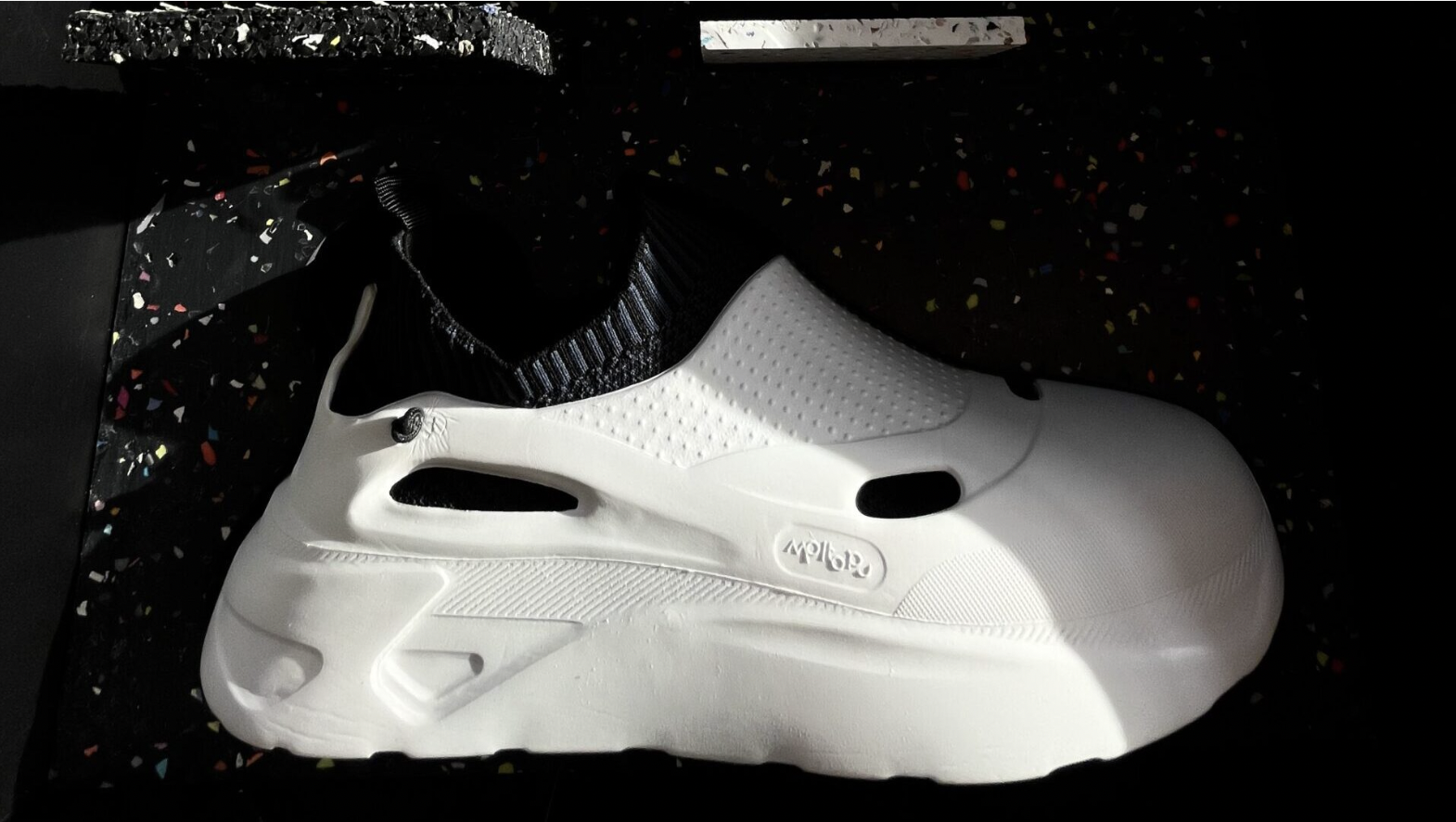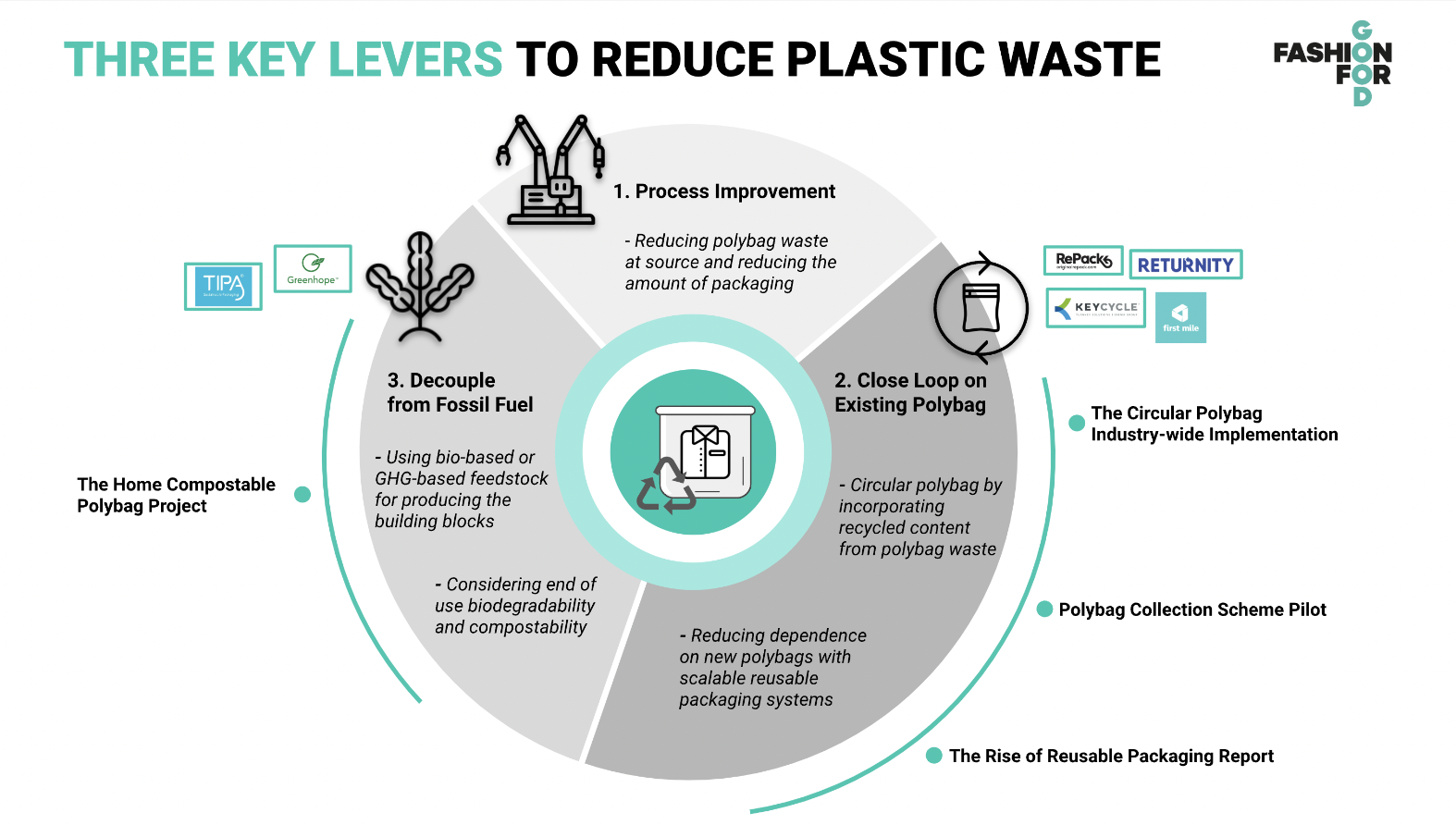Can we recycle polyester?
Image via Getty.
WHAT IS POLYESTER?
Making up 54%1 of total global fibre production in 2022, polyester is one of the most widely produced fibres. Despite its widespread use, the environmental impact of polyester production and disposal raises significant concerns. Polyester derives from petroleum, a nonrenewable fossil fuel which contributes to greenhouse gas emissions. The transformation of crude oil into petrochemicals releases toxins into the atmosphere that are dangerous for humans and the environment, not to mention is highly energy intensive.
Polyester has a wide range of applications and is therefore used in many industries such as hard plastics/packaging, home upholstery and insulation, and, of course, the fashion industry. Many types of polyesters exist, but the most common one used in clothing and in plastic bottles is polyethylene terephthalate (PET). PET is often simply referred to as “polyester” in the fashion industry.
PET is not biodegradable, leading to long-lasting environmental pollution (up to 20 to 200 years are necessary for polyester to decompose)2. Furthermore, the fast-paced trends of the fashion industry contribute to the alarming rate of textile waste accumulation. These discarded clothing, when deposited in landfills, releases harmful chemicals, perpetuating pollution.
WHAT CAN WE DO TO REDUCE THE ENVIRONMENTAL IMPACT OF POLYESTER?
To address the pressing question of how to reduce the environmental impact of virgin polyester, several viable solutions exist. One promising approach is recycling, either chemically or mechanically, which comes in forms such as textile-to-textile recycling and bottle-to-textile recycling.
- Bottle-to-textile: According to Textile Exchange, 99% of rPET used in the textile industry is currently made from plastic bottles, putting the textile industry in competition with the bottle industry. Plastic bottles are a less complex feedstock than polyester textiles, which tend to contain dyes, additives, and other difficult-to-remove chemistries3. A mechanical recycling process breaks down used polyester fibres, often originating from plastic bottles, into entirely new fibres. This mechanical method of recycling applies methods (e.g. shredding, chopping, grinding) to recycle polyester feedstock into new fibres
- Textile-to-textile: As an alternative to bottle-to-textile recycling, chemical recycling of textiles, as the name suggests, uses chemical processes to break down textile waste to a molecular level. There exists a range of processes used to chemically recycle polyester – some target specific solvents to extract PET from a mix of materials, while others go a step further and fully depolymerize the polyester back down to its original building blocks. This allows for a much larger portion of discarded textiles to re-enter the production cycle, even for materials that might be blended with other fibres.
Our innovators have developed a variety of technologies to recycle polyester-rich textile waste. Some innovators, such as Ambercycle and CuRe Technology focus on polyester recycling. While companies like Circ and BlockTexx specifically tackle polycotton blends.
The innovators:
- Ambercycle: Ambercycle converts textile waste into cycora® yarns (regenerated alternative to conventional polyester) for apparel brands and manufacturers. Their process uses textile waste from landfills, purifies and collects polyester pellets to make cycora® yarn from which new clothes can be made – thus reducing demand for virgin materials.
- CuRe Technology: CuRe Technology recycles polyester by purifying it and converting it into high-grade, ready-to-use 100% rPET which can replace PET from fossil-derived sources.
- Syre: Syre is a company that develops solutions to reduce waste and pollution in the textile industry. They achieve this by recycling polyester fabric into new polyester fabric on a large scale. This recycled polyester maintains the same quality as new polyester but has a smaller environmental impact.
- Circ: Circ is a chemical recycler that has the ability to recycle “polycotton” textile waste. In doing so, Circ produces dissolving pulp and polyester monomers that can be reentered into the fashion supply chain, thus reducing reliance on virgin materials. .
- BlockTexx: BlockTexx is a recycler that turns polycotton textile waste into cellulosic clay and polyester resin to be used in other industries such as construction, hard plastics, or adhesives.
OVERCOMING THE DIFFICULTIES FACED BY TEXTILE CHEMICAL RECYCLERS
While there exists a large amount of textile waste, only a small fraction of it can be used as feedstock for existing chemical recycling solutions. Many chemical recyclers require very specific feedstock compositions (e.g. 100% polyester with no elastane), but the established manual textile waste sorting practices are often unable to meet these stringent feedstock material specs. Therefore, in order for chemical recyclers to access usable feedstock, the sorting of textile waste for recycling must therefore also be improved through innovative solutions. Furthermore, a garment labelled as 100% polyester contains many non-polyester components, such as dyes, finishes, sewing thread, and trims (e.g. zippers, buttons, etc), that may interfere with the chemical recycling process and create unforeseen byproducts requiring waste handling of their own.
Bringing together players across the value chain and exploring the possibilities of large-scale recycling, the T-REX Project is harmonising players to build an EU blueprint and identify business opportunities for closed-loop sorting, and recycling of household textile waste. The T-REX Project aims to increase knowledge on the systemic change required to scale fibre-to-fibre recycling, adding to previous studies that include the Fashion for Good and Circle Economy’s ‘Sorting for Circularity Europe’ Report.
ADVANCING THE TECHNOLOGY
In conclusion, the recycling of polyester stands as a viable solution to mitigate its environmental impact and reduce textile waste. Ongoing efforts are crucial to advancing recycling technologies, increasing recycling rates, and fostering a more circular fashion industry for a sustainable future.
It is important to note that the recycling process is not infinite and the recycled polyester fibres themselves weaken with each recycling iteration. In spite of these clear roadblocks, chemical recyclers continue to innovate to adapt their technologies to the textile waste landscape and produce long-lasting, recyclable rPET outputs. Achieving a truly circular solution requires addressing these challenges, developing and improving the advanced recycling technologies further.
1 Textile Exchange. Materials Report 2023.
2 Materials that linger: An embodied geography of polyester clothes. Elyse R. Stanes, University of Wollongong. Christopher R. Gibson, University of Wollongong. http://dx.doi.org/10.1016/j.geoforum.2017.07.006
3 Reuters. Can the fashion industry move from recycled bottles to reused threads? Angela Mehta. https://www.reuters.com/sustainability/climate-energy/can-fashion-industry-move-recycled-bottles-reused-threads-2023-08-30/
Other Articles

Steady in the storm: navigating change and growth in 2024

Key findings from the Fast Feet Grinded Collaborative Pilot

